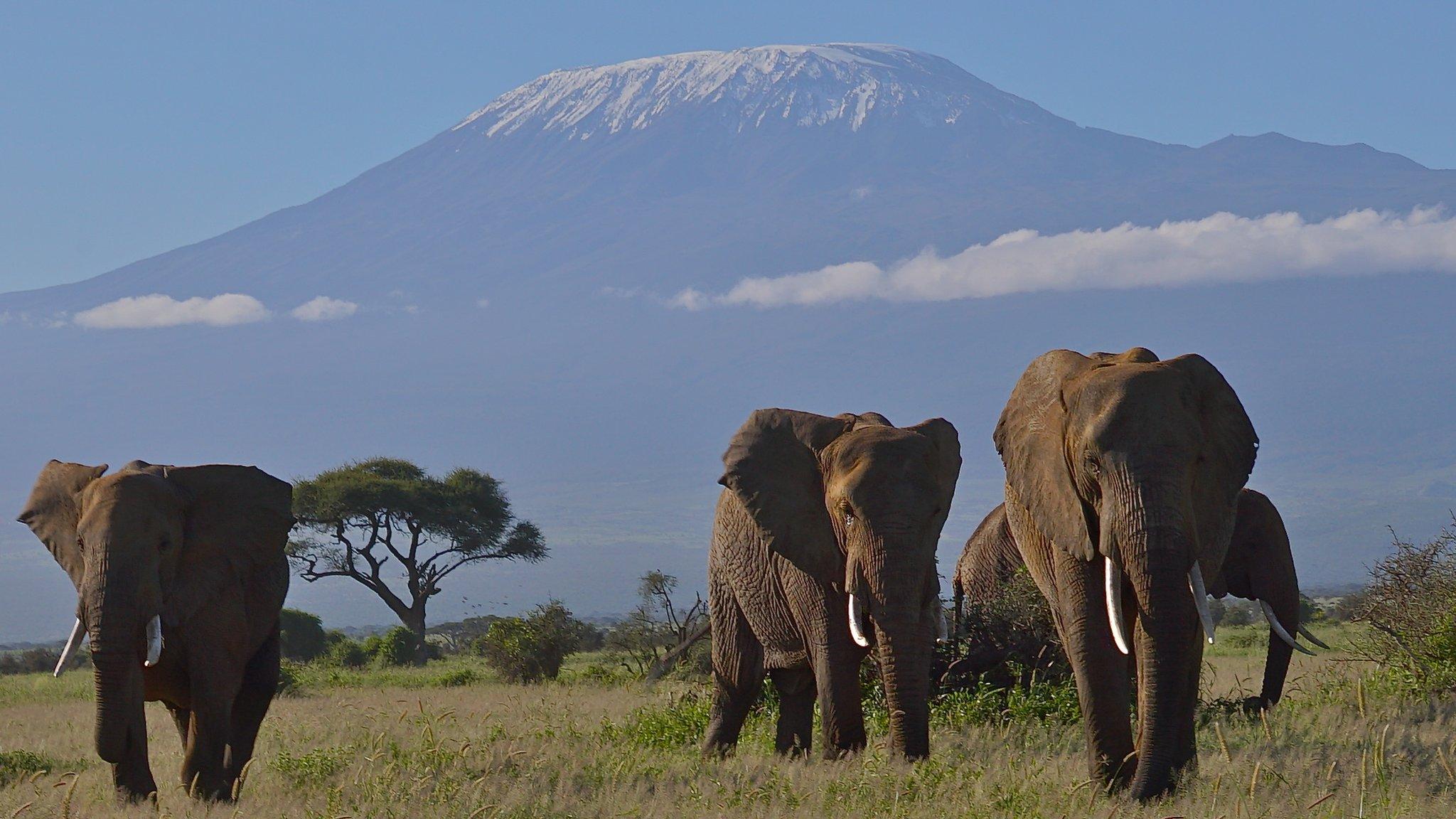Biodiversity: UN report says ‘it is not too late’ to stop the world’s wildlife crisis
- Published
- comments

The United Nations (UN) has given a new warning that action is needed now to protect the natural world.
It comes after the conservation charity WWF said nature is being destroyed at a rate never seen before.
But the UN's latest report says we can slow down and even reverse losses to nature if changes are made.
It has also given eight suggestions for improvements that it wants people and governments to think about.
91»»±¨ Science Correspondent, Victoria Gill, looks at the UN's eight goals to help save nature
It is one of our closest primate relatives, but the Bornean orangutan is on the brink of extinction and the population continues to decrease
Elizabeth Maruma Mrema, the director of the UN Convention on Biological Diversity (CBD) said: "Things have to change.
"The rate of biodiversity loss is unprecedented in human history and pressures are intensifying. Earth's living systems as a whole are being compromised.
"If we take action, the right action - as the report proposes - we can transition to a sustainable planet."
Biodiversity is a measure of how many different species live in an ecosystem. Human activities like changing land use, deforestation and peat bog destruction reduce this.
Areas like tropical rainforests have millions of different species and are very biodiverse. Other areas like the Polar Regions have far fewer species and are less biodiverse.
What does the UN report suggest?
Tackling climate change will be a key part of protecting wildlife populations
The report published by the UN CBD sets out eight ways to help transform the natural world and move towards making the planet more sustainable, these include:
Land and forests: protecting and restoring habitats and other wild areas to tackle climate change
Sustainable agriculture: redesigning the way we farm to reduce the harmful impact on nature through things like forest clearance and intensive use of fertilisers and pesticides which can be dangerous for the environment
Food: eating a more sustainable diet with less meat and fish and "dramatic cuts" in food waste; swapping to sustainable farming and mostly "plant-based diets" are advised
Oceans and fisheries: protecting and restoring marine ecosystems and fishing sustainably - allowing stocks to recover from overfishing. Important marine habitats must also be protected
Urban greening: making more space for nature in towns and cities, where almost three quarters of us live
Freshwater: protecting lake and river habitats, reducing pollution and improving water quality to protect wildlife
Urgent climate action: taking action on climate change with a "rapid phasing out" of fossil fuels, which contribute towards climate change
A 'One Health' approach: this encompasses all of the above. This means managing our whole environment, whether it is urban, agricultural, forests or fisheries with the aim of promoting "a healthy environment and healthy people".
Are we doing enough to protect the natural world?
Why is climate change a problem?
All 196 of the world's nations will be expected to promise to meet the goals by 2030.
In 2010 world leaders agreed to meet a number of other goals, to stop damage and loss of habitats and wildlife by 2020, but the UN says nations, including the UK, have failed.
Out of 60 areas that make up the targets, just seven have been achieved.
Young white-tailed eagles are being reintroduced on the Isle of Wight
Research by the RSPB, for example, suggests the UK has failed to meet targets including ensuring the protection of areas that look after wildlife, allocating money for protecting nature and helping species facing extinction.
Some progress has been made, but in 13 of the 60 areas needing change, there has been no progress, or the situation has got even worse.
The report says wetlands are declining, fishing is continuing at unsustainable levels, which causes damage to marine habitats, and a million species are now at risk of extinction.
Many primates, including the endangered gold snub-nosed monkey, are in decline due to loss of habitat
Ms Mrema said: "Many good things are happening around the world and these should be celebrated and encouraged."
But she added: "The window of time available is short, but the pandemic has also demonstrated that transformative changes are possible when they must be made."
Next year, China will hold the UN biodiversity conference, where countries are expected to agree to the new targets and promise to work towards putting nature on a path to recovery by 2030.
- Published28 April 2020
- Published19 September 2020
- Published13 May 2020
